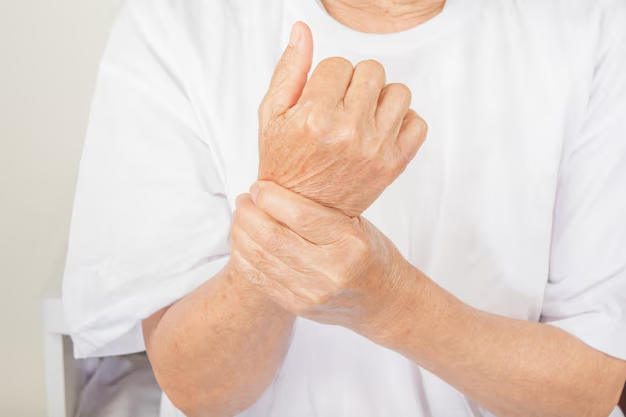Your Guide to What Can Lead To Osteoporosis
What You Get:
Free Guide
Free, helpful information about Osteoporosis FAQ and related What Can Lead To Osteoporosis topics.
Helpful Information
Get clear and easy-to-understand details about What Can Lead To Osteoporosis topics and resources.
Personalized Offers
Answer a few optional questions to receive offers or information related to Osteoporosis FAQ. The survey is optional and not required to access your free guide.
Discovering the Underlying Causes of Osteoporosis
Osteoporosis, a condition characterized by weak and brittle bones, often catches individuals unprepared. As we age, various factors can contribute to the development of this insidious condition, but the good news is that awareness and early intervention can make a significant difference. So, what can lead to osteoporosis, and how can you navigate the landscape of available resources to manage it?
What Causes Osteoporosis?
Aging and Hormonal Changes
As we age, bone density naturally decreases. For women, the decline is especially pronounced after menopause due to reduced estrogen levels, which is pivotal for maintaining bone density. Men, too, experience a decline in testosterone over time, affecting bone strength.
Genetic Factors
Your family history plays a critical role. If osteoporosis runs in your family, you might be predisposed to developing it as well.
Dietary Insufficiencies
Calcium and vitamin D are essential for bone health. A diet lacking these nutrients can significantly impact bone strength.
Sedentary Lifestyle
Bones are like muscles—they require regular exercise to remain strong. A lack of physical activity can hasten bone density loss.
Medical Conditions and Medications
Certain medical conditions such as rheumatoid arthritis or hyperthyroidism and medications, including steroids and some cancer treatments, can increase osteoporosis risk.
Lifestyle Choices
Some lifestyle choices, such as excessive alcohol consumption and smoking, can negatively affect bone health, contributing to osteoporosis over the long term.
Exploring Solutions: Financial Aid and Support
Finding yourself facing a diagnosis of osteoporosis can be daunting, not just physically and emotionally, but financially too. Fortunately, several resources can help manage the burden.
Government Assistance and Support Programs
Medicare and Medicaid
These programs can cover parts of treatment costs associated with osteoporosis, including diagnostics and medications under specific conditions.
Financial Aid and Debt Relief Options
Medical Bill Assistance
Some organizations specialize in helping patients negotiate or reduce medical bills, including those related to osteoporosis treatments.
Debt Management Solutions
Developing a strategic plan to manage or consolidate medical debt can provide peace of mind when focusing on your health.
Educational Opportunities and Resources
Bone Health Grants
While not as common as other health-related grants, educational initiatives aimed at public awareness and training in osteoporosis management are available. They can provide important knowledge and even funding for further research or personal education.
Credit Card Solutions for Medical Expenses
Some credit cards offer low-interest rates or balance transfer options specifically catered to managing healthcare costs. These can be a viable option if you're trying to spread out the cost of medical treatments.
Managing osteoporosis involves understanding not just the medical side but the financial side too. A comprehensive plan that includes preventative measures and leveraging available resources can ease both the physical and financial burden of this condition.
Programs and Resources to Consider:
- 🏥 Medicare/Medicaid: Coverage for eligible medical expenses.
- 💳 Health-focused credit cards: Low-interest options for medical debt.
- 🤝 Medical Bill Assistance Organizations: Aid in negotiating or reducing expenses.
- 📚 Bone Health and Education Grants: Opportunities for both personal and academic knowledge expansion.
- 📉 Debt Management Plans: Tailored strategies for medical debt consolidation.
With informed choices and the right support, not only can osteoporosis be managed effectively, but it can also be a stepping stone toward a healthier lifestyle and financial security.
What You Get:
Free Osteoporosis FAQ Guide
Free, helpful information about What Can Lead To Osteoporosis and related resources.

Helpful Information
Get clear, easy-to-understand details about What Can Lead To Osteoporosis topics.

Optional Personalized Offers
Answer a few optional questions to see offers or information related to Osteoporosis FAQ. Participation is not required to get your free guide.


Discover More
- a Nurse Is Caring For a Client Who Has Osteoporosis.
- a Percutaneous Is Performed To Treat Osteoporosis Related Compression Fractures
- Can Alcohol Cause Osteoporosis
- Can I Do Pilates If I Have Osteoporosis
- Can I Reverse Osteoporosis
- Can Men Get Osteoporosis
- Can Osteoporosis Affect Teeth
- Can Osteoporosis Be Cured
- Can Osteoporosis Be Painful
- Can Osteoporosis Be Reversed
